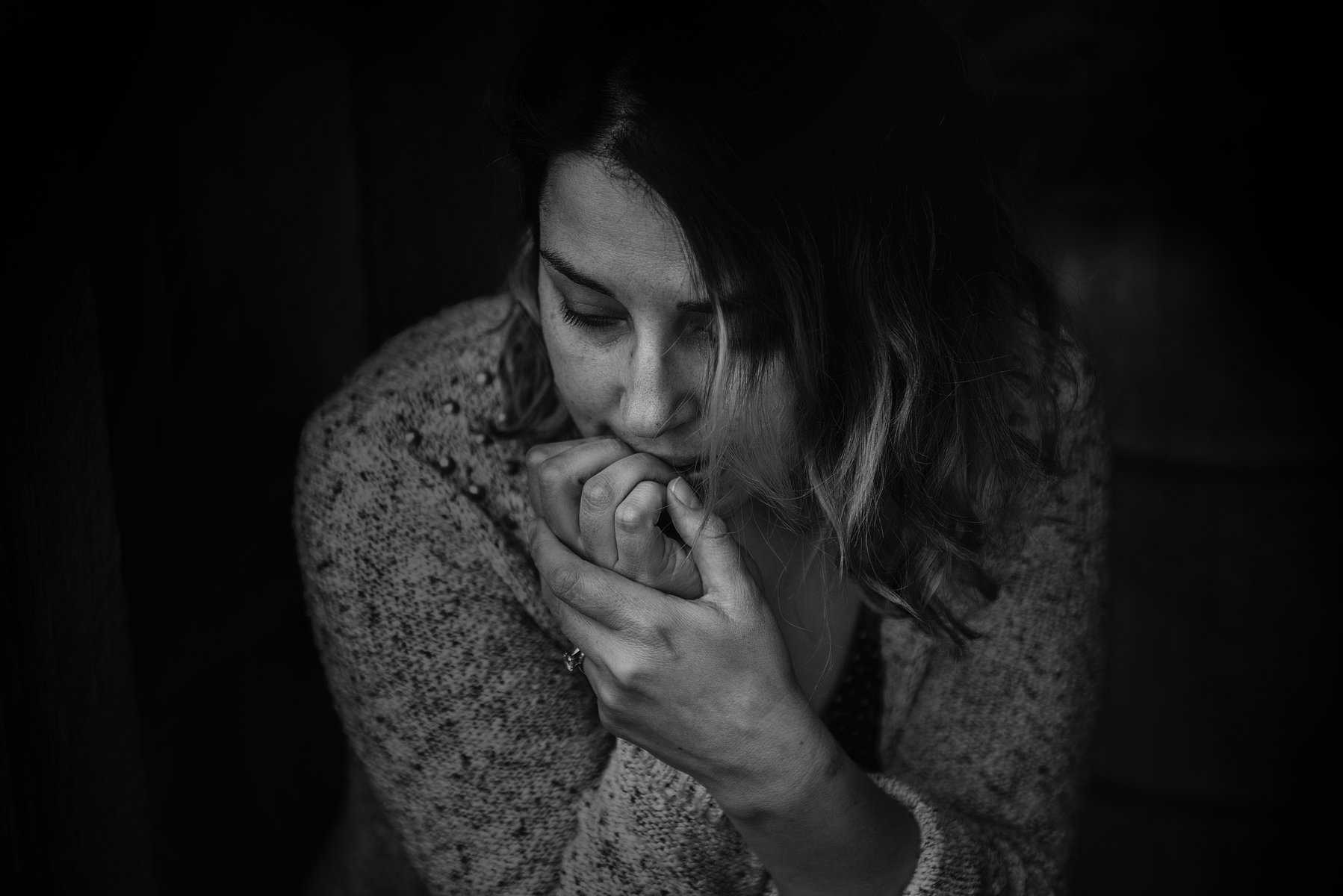What Are Anxiety Disorders?
Anxiety disorders are the most common mental illness in the United States, affecting 40 million adults in the US every year. That’s 18% of the population. And yet, anxiety disorders are often misunderstood and undertreated. This is partly because there are so many different types of anxiety disorders, each with its own set of symptoms. In this article, we will explore some of the most common types of anxiety disorders and their symptoms.
What Are Anxiety Disorders
Anxiety disorders are a group of mental health conditions characterized by feelings of excessive uneasiness, worry, fear, or panic. These emotions can interfere with daily activities and make it difficult to function.
Anxiety disorders in the DSM-5 include generalized anxiety disorder (GAD), panic disorder, social anxiety disorder (social phobia), specific phobia, agoraphobia, separation anxiety disorder, selective mutism, substance/medication-induced anxiety disorder, anxiety disorder due to another medical condition, other specified anxiety disorder, and unspecified anxiety disorder. The DSM-5 moved OCD under obsessive-compulsive and related disorders, while PTSD is now classified as a trauma and stressor-related disorder.
People with anxiety disorders often experience physical symptoms, such as rapid heart rate, sweating, trembling, and dizziness. They may feel overwhelmed and unable to cope with everyday situations. Anxiety can lead to avoidance of certain activities or places that make one anxious.

What Are the Different Types of Anxiety Disorders?
There are several different types of anxiety disorders including:
- Generalized anxiety disorder (GAD) is characterized by intense and frequent feelings of worry, fear, or dread that often interfere with daily activities.
- Panic disorder is an intense fear or sense of doom that can come on suddenly or without warning and usually resolves within a few minutes.
- Social anxiety disorder, also known as social phobia, is an intense fear or discomfort in social situations.
- Specific phobias are persistent, irrational fears of certain objects or situations.
- Agoraphobia is a fear of being in public places, such as a shopping mall, movie theater, or crowded area.
- Separation anxiety disorder is when a person experiences extreme fear or distress when separated from a loved one.
- Selective mutism is an anxiety disorder in which a person is unable to speak in certain social situations.
- Substance/medication-induced anxiety disorder is when anxiety symptoms are caused by the use of certain substances or drugs.
- Anxiety disorder due to another medical condition is when anxiety symptoms are caused by a medical condition.
- Other specified anxiety disorder is when a person has anxiety symptoms but does not fit any of the other categories.
- Unspecified anxiety disorder is when a person has anxiety symptoms that are not otherwise specified.
It is important to note that many people experience anxiety in their everyday lives, but they do not have an anxiety disorder. Anxiety can be a normal reaction to stress and can even help you cope with difficult or uncomfortable situations.
What Causes Anxiety Disorders
The exact cause of anxiety disorders is not known, but there are several factors that may play a role in their development. These include genetics, certain brain chemicals and structures, stressful life events, and medical conditions.
Genetics can play a role in the development of anxiety disorders, as some people may be more likely to develop one due to their family history. There is also evidence that certain brain chemicals and structures, specifically serotonin and GABA, might be involved in the development of anxiety.
Stressful life events such as trauma, family conflict, and financial pressure can cause or worsen anxiety symptoms. Additionally, medical conditions like thyroid disorders, heart disease, and diabetes may contribute to the development of an anxiety disorder.
It is important to remember that there is no single cause for anxiety disorders. Many different factors can play a role in their development.

How Do Anxiety Disorders Affect People
Anxiety disorders can have a hugely detrimental impact on people’s lives. People with anxiety may experience overwhelming fear and worry, and physical symptoms such as increased heart rate, difficulty sleeping, sweating, shortness of breath, nausea, chest pain, and confusion. They may also experience panic attacks which are episodes of intense fear or terror that come on suddenly and peak within minutes. People may also have persistent negative thoughts or worries that they cannot control, feel tense and on edge, struggle to concentrate or make decisions, or avoid certain situations due to fear.
Anxiety can affect daily life by making it difficult for people to go about their activities of daily living such as going to school or work, attending social events, or engaging in hobbies. It can lead to problems with relationships, work performance, school attendance, and physical health.
In more severe cases, people may be unable to leave home due to fear and anxiety, leading to isolation and social withdrawal. People with anxiety disorders may also turn to alcohol or other substances in an attempt to cope with their symptoms, which can lead to further health issues. Without proper treatment, anxiety disorders can become disabling and severely disrupt a person’s life.
What Are the Symptoms of Anxiety Disorders
Anxiety disorders can manifest differently in each person, but they typically include excessive fear, dread, or worry that interferes with daily life. Common symptoms of anxiety disorders may include:
- Physical symptoms such as nausea, trembling, sweating, and a rapid heartbeat
- Feelings of impending doom or danger; difficulty concentrating
- Intrusive thoughts or memories
- Avoiding certain situations
- Difficulty sleeping
- Restlessness or irritability
Anxiety disorders can also manifest through panic attacks, which involve sudden episodes of intense fear and physical symptoms such as sweating, shaking, shortness of breath, and chest pain.
How Are Anxiety Disorders Treated
Treatment for anxiety disorders typically involves psychotherapy and/or medication. Cognitive Behavioral Therapy (CBT) is a type of psychotherapy that helps people identify and change unhelpful thought patterns and behaviors. SSRIs and SNRIs are medications commonly prescribed for anxiety disorders, which work to balance the levels of serotonin in the brain. When taken as directed by a doctor, both can be effective in decreasing symptoms of anxiety.

How Can I Cope With Anxiety
There are several steps that you can take to cope with anxiety and reduce stress. One of the most important is to practice self-care, which can include things such as eating a balanced diet, exercising regularly, and getting enough sleep. It can also help to reach out for social support from family and friends or join an online or in-person support group.
Mindfulness techniques like deep breathing, yoga, and meditation can be helpful in calming the mind and reducing stress. Additionally, engaging in activities that bring joy or relaxation such as painting, listening to music or reading can help to reduce symptoms of anxiety.
It’s also important to remember that professional help is available if you are struggling with anxiety. Speak with your doctor or a mental health professional to learn more about treatment options and develop a plan for managing symptoms.
Are There Any Ways To Prevent Anxiety Disorders
There are several ways to reduce the risk of developing anxiety disorders. Developing healthy coping skills and avoiding known triggers can help reduce the risk of developing an anxiety disorder. Additionally, regular exercise, a balanced diet, adequate sleep, and engaging in activities that bring joy or relaxation can be beneficial for managing existing anxiety symptoms. In some cases, medication may be used to help manage anxiety symptoms if lifestyle changes alone are not enough.
Stress management techniques such as mindfulness, deep breathing, progressive muscle relaxation, and cognitive-behavioral therapy (CBT) can also be effective in helping to reduce the intensity of anxiety. Additionally, connecting with supportive family and friends, participating in a support group, or talking to a mental health professional can also be beneficial in managing anxiety and preventing its development.
When it comes to reducing the risk of developing an anxiety disorder, prevention is key. Taking steps to develop healthy coping skills and understanding known triggers are important for maintaining good mental health. Additionally, engaging in activities that bring joy or relaxation and making lifestyle changes to improve overall health can help reduce the risk of developing an anxiety disorder. If needed, talking to a mental health professional or a support group may also be beneficial in managing symptoms and preventing the development of an anxiety disorder.
Can Anxiety Disorders Be Cured
The answer to this question is not a simple yes or no. While some people may experience a complete recovery from their anxiety disorder, others may find that they need ongoing management and support. Many individuals with an anxiety disorder will benefit from professional treatment such as psychotherapy and/or medication. These treatments can help a person to manage their anxiety symptoms and lead a more productive life. Additionally, lifestyle changes such as relaxation techniques, exercise, or dietary changes can also help people with anxiety disorders.
Finding the right combination of treatments is important for each individual, so it’s important to work closely with your doctor to determine what works best for you. With the right treatment and some patience, many people can find relief from their anxiety disorder.

When Should You Seek Professional Help for an Anxiety Disorder
If you have been dealing with anxiety for more than six months, feel overwhelmed by your symptoms, or are struggling to manage day-to-day tasks, it is important to seek professional help. A mental health professional can help identify the underlying cause of the anxiety and provide resources and strategies to treat it. Treatment options may include cognitive behavioral therapy, medication, or a combination of the two. It is also important to note that anxiety disorders are highly treatable, and many people find relief from their symptoms with the help of a professional. Seeking help for an anxiety disorder is the first step to managing your symptoms and improving your quality of life.
If you think you may be suffering from an anxiety disorder, do not hesitate to reach out for professional help. Seeking assistance as soon as possible is the best way to get on the path to feeling better. With the right help, you can take steps toward managing your anxiety and leading a happier, healthier life.
Conclusion
Anxiety disorders can be difficult to manage and affect many aspects of life. However, it is important to remember that anxiety disorders are treatable and there are strategies that can help you cope with the symptoms. With the right treatment and dedication, you can take steps toward managing your anxiety and leading a fulfilling life.
